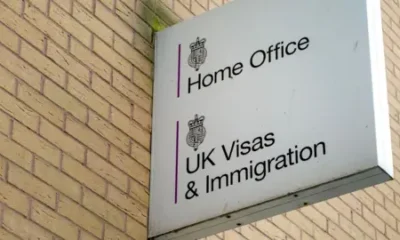Breaking News
West Bank locals report ongoing Israeli settler expansion
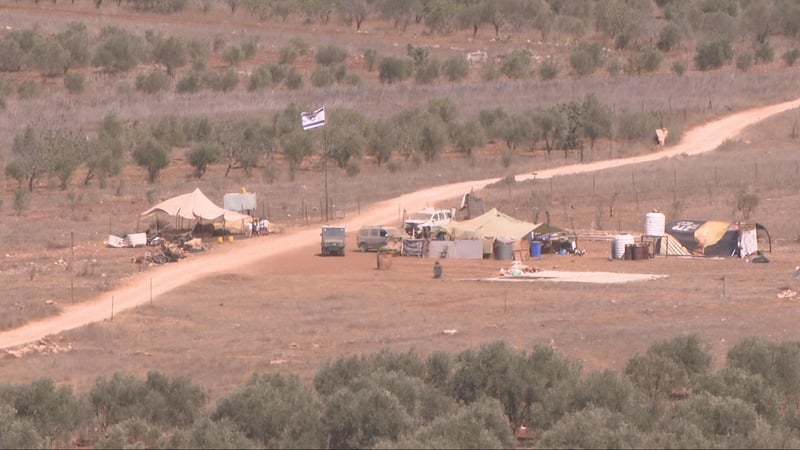
Read more on post.
Europe Editor Tony Connelly and cameraman Bram Verbeke report from Turmus Ayya and al-Mughayyir in the West Bank where locals report the continued expansion of Israel settlements and the destruction of local farms.
The ancient olive groves of the West Bank, the ideal retirement for a Palestinian-US citizen returning from California.
But, since 7 October, Israeli settlers from across the valley have intimidated Yasser Alkam from accessing his father’s legacy in Turmus Ayya.
Mr Alkam said he legally owns the land, adding that he has the paperwork and a title document for it.
However, in one incident, he said a gun was drawn on him, during which he was told “leave or else”.
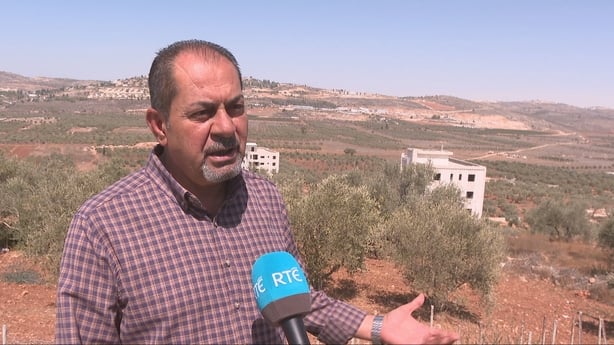
The legal rights count for little, as settlers seizing or destroying the olive groves are backed by the Israeli military, who mount nightly patrols around Mr Alkam’s neighbourhood and appear by day to support the expansion towards his town.
He noted that, two weeks ago, there was “one single tent” nearby, but added that currently there are two.
“One on the right side of the street and one on the left side of the street,” he said.
“It continues to spread out closer and closer to the town,” he added.
A settler witnessed the RTÉ News interview with Mr Alkam, and launched a drone that duly appeared and hovers above the interaction.
Watch: Drone hovers overhead while RTÉ News interviews Palestinian farmer in West Bank
Mr Alkum’s olive trees remain intact for now, but another village, 6km away, has not been so fortunate – as fresh settler outposts have sprung up.
There are two new and illegal outposts on the hills near the village.
But the real dispossession has happened in the valley, where hundreds of hectares of land were uprooted by bulldozers.
Over 10,000 olive trees were destroyed and taken away, according to the locals.
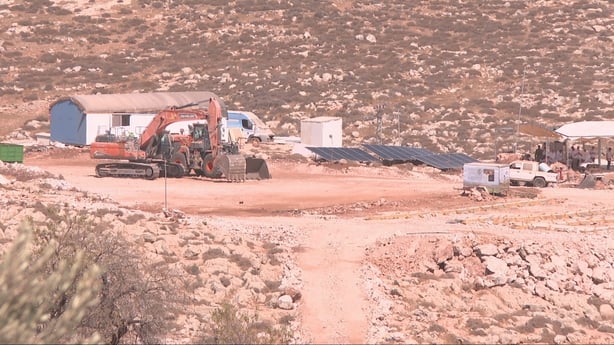
Locals say a confrontation with settlers last month triggered an assault by two busloads of military and settlers equipped with bulldozers.
Deputy head of the al-Mughayyir municipality Marzouq Abu Naem said the destroyed olive trees “would have provided 5,000 gallons of olive oil, each gallon worth $150”.
“All this income has gone, just like the olive trees themselves,” he said.
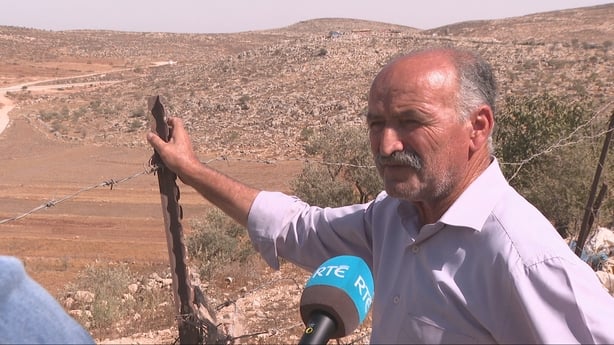
Mr Naem said the trees “represented our history, our culture”.
He added that people “collapsed in grief” when they saw the trees were gone.
Not long after RTÉ News visited, locals said settlers attacked again.
A local man was wounded and he later died of his injuries.
The funeral was held today.
Clashes between settlers and Palestinians have grown ever more deadly as Israel defiantly shrugs off international outrage over Gaza and turns its attention on the parched hills of the West Bank.
Breaking News
No one-off measures in next year’s Budget – Donohoe
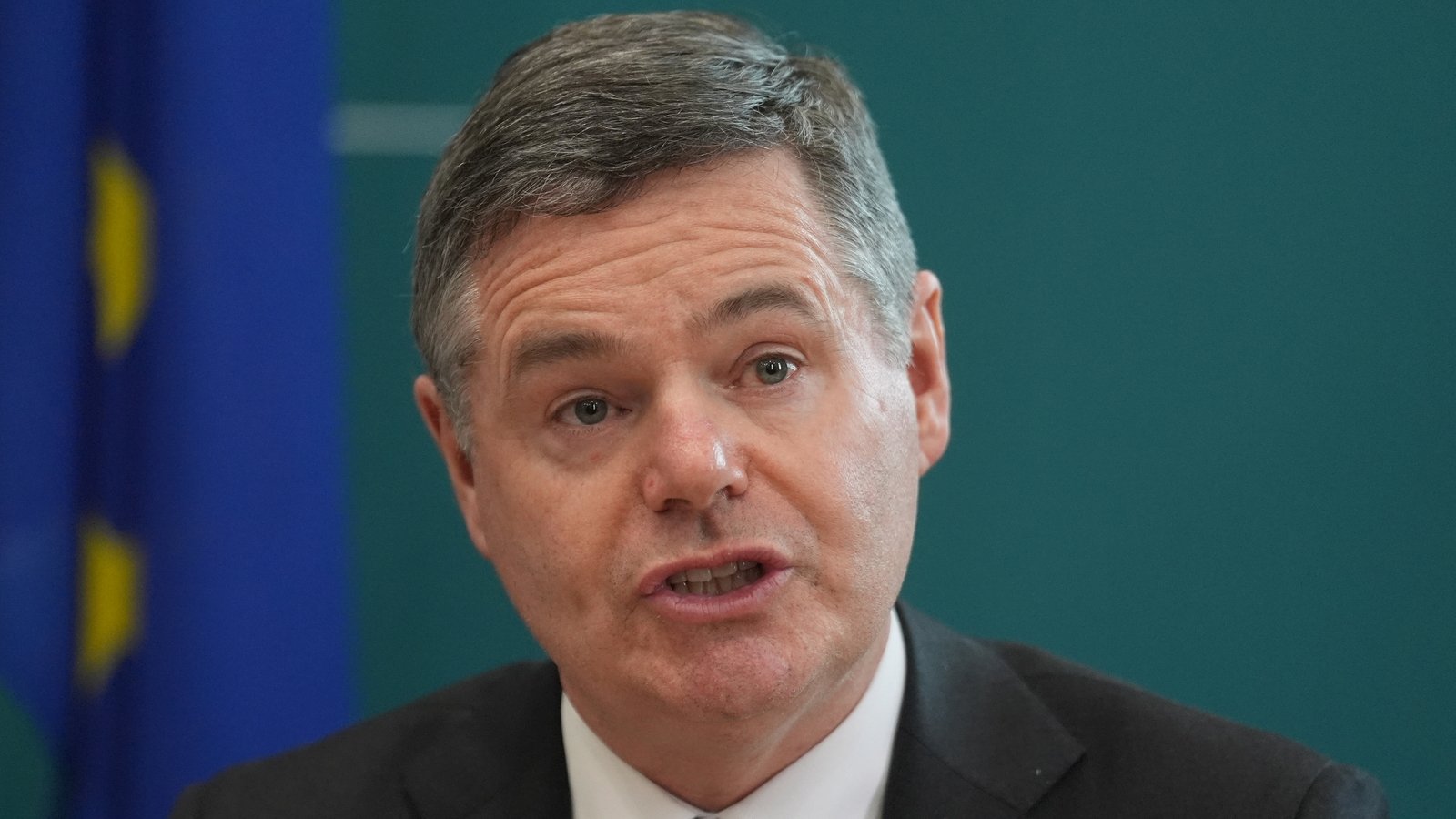
Read more on post.
The Minster for Finance has insisted there will be no repeat of last year’s once-off cost of living measures, but other permanent supports will be put in place in next month’s Budget.
Speaking at the Oireachtas Budgetary Oversight Committee, Paschal Donohoe said inflation has normalised, although the Government understands that prices have risen.
“Government is fully aware of the impact inflation has had on businesses and households throughout the country over recent years,” he said.
“Inflation has now returned to normal rates, but we are acutely conscious that price levels have risen in recent years, especially for necessities such as food. In this Budget, we will provide cost of living supports that are sustainable and permanent.”
Mr Donohoe told the Committee the economy is resilient, the public finances are in good shape and Modified Domestic Demand which measures activity in the domestic economy grew 4% in the first half of 2025.
However, he said it is not a time for complacency and the rate of growth of current spending has to be moderated. He also spoke the danger of over reliance on corporation tax receipts.
“Ireland must remain a top destination for multinational firms. These corporation tax revenues helped fund Government’s extraordinary response to the pandemic and the cost of living challenge,” he said.
“Nonetheless, I have warned on many occasions about the risks of overreliance on corporation tax. A highly concentrated tax base presents an inherent risk to sustainable public finances.
“Ten companies account for well over half of all corporate tax receipts. A negative shock to these companies would also negatively impact VAT and income tax revenues.”
Mr Donohoe said Budget 2026 is coming at a time of great uncertainty and the disruption of internationally settled trade rules will damage Ireland’s economic growth.
He said, however, the economy is fundamentally resilient.
Budget 2026 will be announced in the Dáil on 7 October by the Mr Donohoe and the Minister for Public Expenditure, Infrastructure, Public Services and Reform, Jack Chambers.
Breaking News
Father urges State to help him get toddler daughter back to Ireland
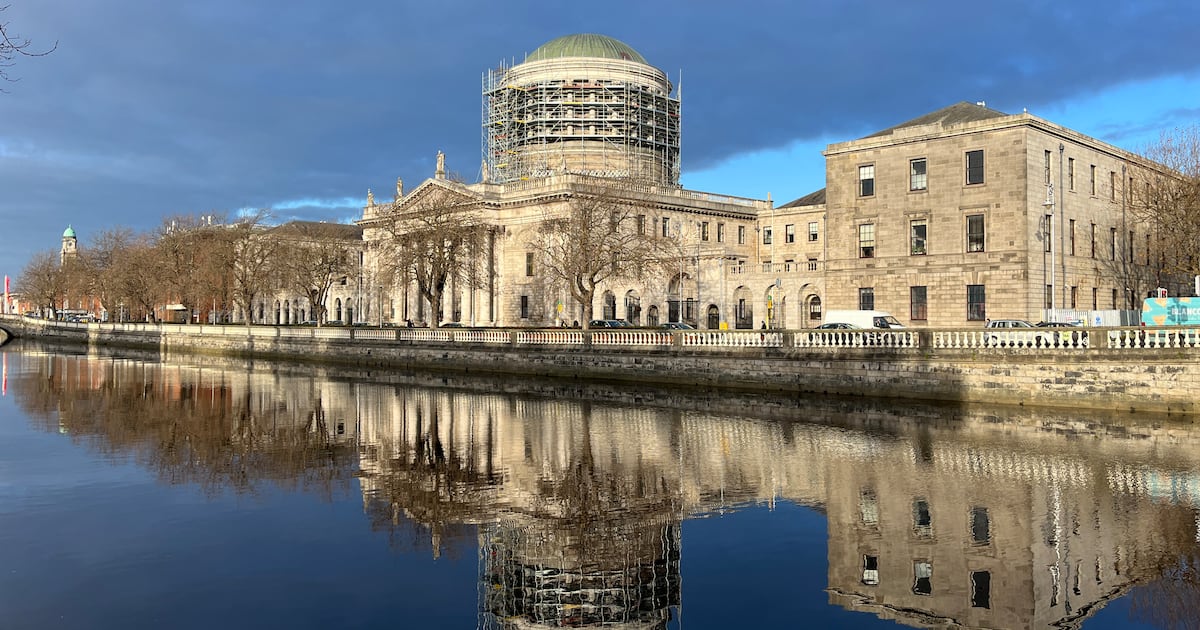
Read more on post .
In what a judge described as a “heart-rending” case, a father wants orders directing the State to take immediate steps for the return to Ireland of his child who he has not seen since early this year.
The toddler was taken by her mother to her native Poland without her father’s consent and remains there after a Polish court directed her return to Ireland.
The parents are in dispute over the mother’s claim the child will receive better treatment in Poland for her medical condition.
On Wednesday, the man told the High Court’s Mr Justice Micheál P O’Higgins, who was dealing with the court’s vacation list, he has not seen his daughter since he saw her in a Polish court last January. He is “the only one fighting for her rights”, he said.
Paul McCarthy SC, for various State defendants, said this is “a human story” and there was no lack of sympathy from the defendants for the predicament of the man and his child.
It is also a legal matter and the man has no cause of action against the State parties, counsel said. The State is “doing all it can” but there were legal and diplomatic limits on what it can do.
Mr Justice O’Higgins said it was a “heart-rending” matter and the court required further materials and legal documents and submissions before deciding how to proceed.
He made directions for exchange of those documents and returned the man’s application for various orders and declarations to October 8th.
He adjourned to the same date the defendants’ application to strike out the man’s proceedings on grounds they disclose no cause of action and are bound to fail.
The judge made orders preventing identification of the parties.
Earlier, he was told that a Polish ombudsman has sought to bring an appeal there concerning the court orders for return of the child.
The man said he wanted orders for the Irish Government to challenge Poland about the failure to return his child to Ireland. He has been left on his own and has “no time for legal gymnastics”, he said.
Breaking News
Hunt for childcare a desperate gambit for parents, campaign group hears
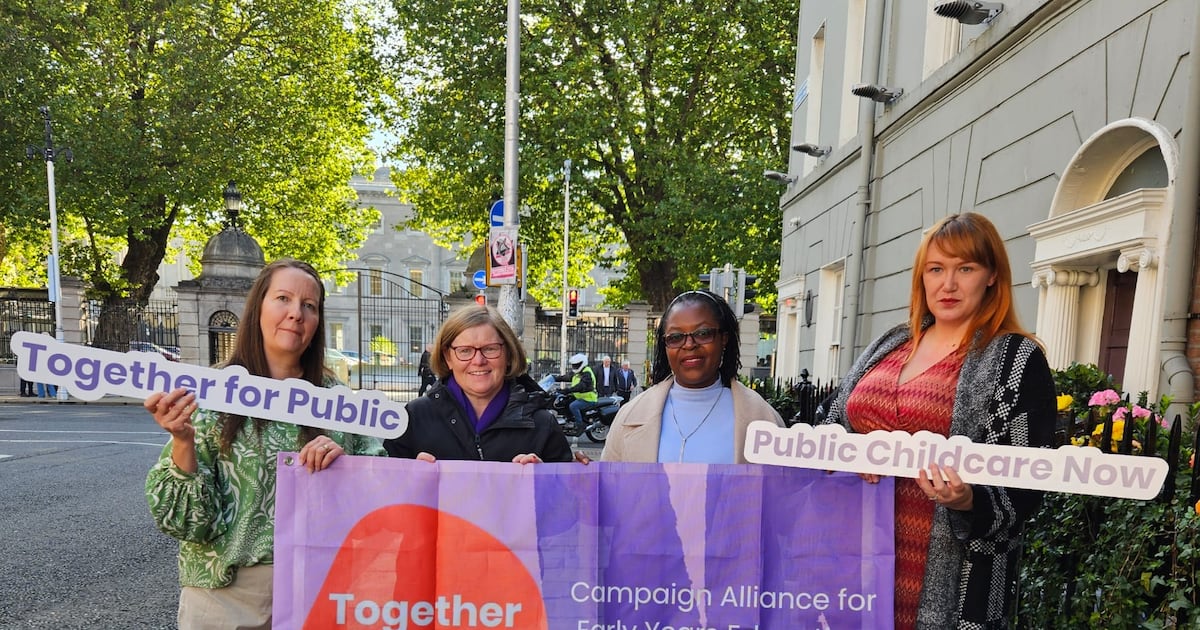
Read more on post .
A shortage of childcare options is leaving many desperate parents with no option but to treat creche places the way they do city centre car parking spaces, a parent of two young children has said.
Jessica Lee, an early years education lecturer at Technological University Dublin who is currently on maternity leave, was speaking at a meeting of a childcare campaign group in Dublin on Wednesday.
The Together for Public alliance is led by the National Women’s Council and is calling on the Government to roll out public early childhood education and care services in the forthcoming budget.
“The way childcare is being treated at the moment is like parking spaces for children,” Ms Lee told the event in Dublin on Wednesday morning.
“It’s like you drive around until you find an empty space to park your child, to shove your child into, to keep them alive until you come home at the end of the day.”
When Ms Lee’s three-year-old, Henry, suddenly lost his place in a childcare setting last year, it caused the family huge stress, she said, because of the lack of alternatives.
Now, after the arrival of Alice (aged three months), there is the pending problem of paying for childcare for two.
“My son isn’t at the point of starting primary school yet and so we’re going to be paying around €1,200 to €1,500 a month … that’s with the subsidies applied. I don’t know how we’re going to manage it, but we have to because we both have to work. The irony in my case is it’s because I want to go back and train early childhood educators.”
Director of the National Women’s Council, Orla O’Connor, said Ms Lee’s experience highlights the shortcomings in a system that is failing the majority of its stakeholders.
“It’s not working,” she said. “It’s not working for children, for women, for parents, for educators. Providers and families are really being pushed to the brink, and they can’t wait any longer to have real solutions. That’s why we’re saying that with Budget ’26 the Government has an opportunity to signal a new approach, and key to that is what they’ve already committed to in the programme for government.”
She said the alliance, which includes more than 40 civil society organisations, is calling for an additional €30 million to provide 3,000 extra places next year as well as funding to continue the process of reducing fees, investment in infrastructure, ring-fenced money for improved pay and a greater targeted supports for accessibility and inclusivity programmes.
“We met with the Minister [for Children], Norma Foley and she said she is committed to what’s in the programme for government,” said Ms O’Connor, “but those were words, and what we need to see now is action in this budget.”
Wednesday’s meeting at Buswell’s Hotel in Dublin 2 heard from a number of other speakers with experience of the sector, including Minna Murphy, originally from Finland, who runs two services in Co Cork and said many small providers like her own are struggling.
[ Free childcare is key in addressing child poverty, advocacy group saysOpens in new window ]
After 10 years of running one preschool, she said, “I had an opportunity to expand, so I opened my second preschool, and I started an after-school, the first ever after-school service in our village. Now, I’m in a position to pay myself a managerial salary, and I am in a position to pay higher salaries for my staff. I wasn’t able to do that when I was just running one service.”
Louise Bayliss, head of social justice at St Vincent de Paul, said adequate provision of early-years services was key to helping families, particularly those with one parent, out of poverty.
“Tackling child poverty and increasing their wellbeing is not only about income transfers,” she said, “it is also about ensuring access to high-quality, universal public services. And early-years services are absolutely key to that.”
-
Breaking News1 day ago
Barack Obama to be conferred with freedom of Dublin at ceremony on Thursday
-
Culture1 day ago
Taylor Swift’s new cinema outing generates more than €12million in just 24 hours
-
Culture1 day ago
Milan Fashion Week 2025: Unmissable shows and Giorgio Armani in mind
-
Politics1 day ago
European Parliament snubs Orbán with vote to shield Italian MEP from Hungarian arrest
-
Travel & Lifestyle2 days ago
The Best Way to See Rome? On a Running Tour at Sunrise
-
Business9 hours ago
Households to be offered energy bill changes, but unlikely to lead to savings
-
Culture2 days ago
Marvel stars Mark Ruffalo and Pedro Pascal stand up for Jimmy Kimmel as Disney boycott intensifies
-
Opinion2 days ago
Saving the best for last: How the Making In symposium left an indelible mark






